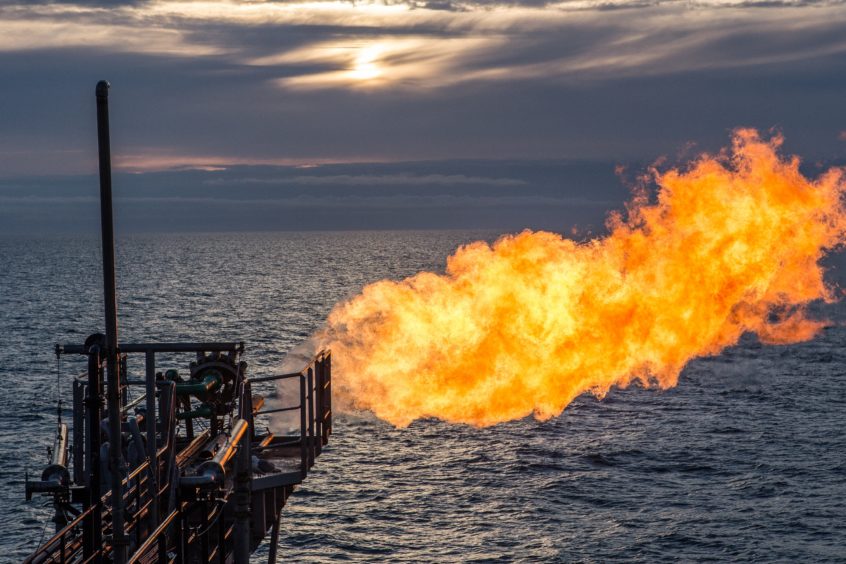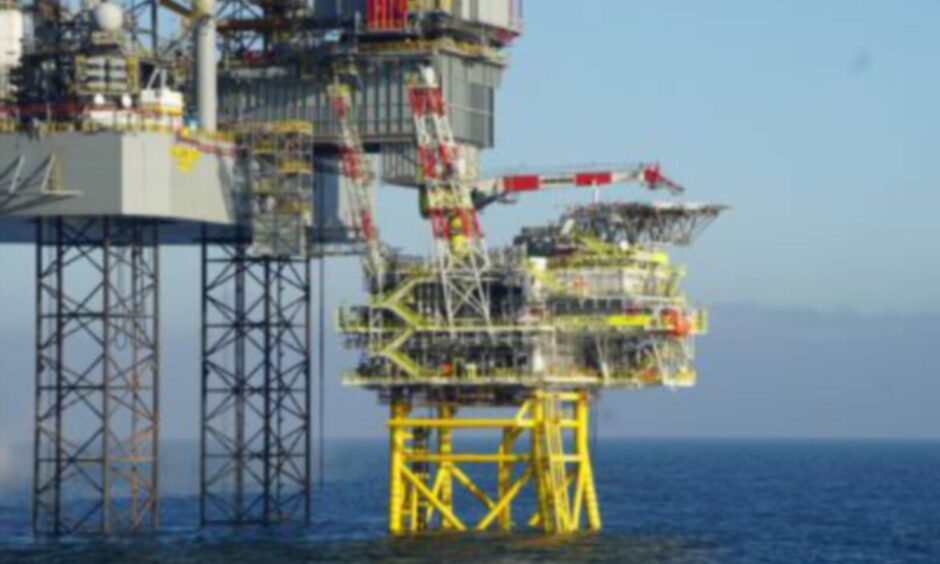MPs have pressed the UK Government to set a clear date for ending new oil and gas licensing rounds.
Members of the cross-party environmental audit committee (EAC) say it will show international climate leadership.
They want the government to set an end date “well before 2050”.
The recommendations are made in a wide-ranging analysis of the British Energy Security Strategy (BESS).
Britain will continue to need to access fossil fuel supplies during the net-zero transition. But government should consult on setting an end date for licensing oil and gas.”
Committee chairman Philip Dunne MP.
EAC’s report – Accelerating the transition from fossil fuels and securing energy supplies – is published today.
It also calls for tougher targets to drive electrification and lower the energy sector’s operational emissions.
The analysis includes months of evidence given by civil servants, industry representatives, academics and environmental campaigners.
‘Historic responsibility’
While the authors note the “admirable” climate leadership shown by the UK during COP26, they also stress a “historic responsibility” to set a leading example on new licensing.
They add: “The Paris Agreement enshrined an important principle of ‘equity and common but differentiated responsibilities’, which the UK must honour if it is to remain a credible climate leader.
“We, therefore, recommend that the UK sets a clear date for ending new oil and gas licensing rounds in the North Sea.”
The document goes on to suggest the government consults on when this date should be, taking into account factors including oil and gas output planned by the UK and other producing nations.
Committee members point to other oil-producing countries, such as Denmark, France and Ireland, which have already unveiled plans to phase out fossil fuel production.
The Department for Business, Energy and Industrial Strategy was approached for comment.
‘Further and faster’ on emissions
EAC says more action is needed on production emissions, particularly as the energy sector has been aware of its contribution to man-made climate change since the 1990s.
The report adds: “A responsible industry should have been working to clean up its operations with far greater urgency.”
And it urges the government to push the sector to “go further and faster than its current approach”.
Disappointment at pace of electrification offshore
The MPs also say they are “disappointed” that only two offshore electrification projects are expected to be commissioned by 2027.
They have called on regulator the North Sea Transition Authority (NSTA) to use its powers to insist on electrification for “all new oil and gas projects” as part of the upcoming 33rd offshore licensing round.
“Challenging targets for the industry to undergo rapid decarbonisation must be introduced without delay,” the report says.
It also suggests the North Sea Transition Deal (NSTD) is modified to include stronger targets and verification arrangements in line with the UK Government’s commitments under the Paris Agreement.
Under current NSTD targets, the sector has committed to a 50% reduction in emissions by 2030 and 90% by 2040, in advance of it reaching net-zero by 2050.
NSTA has said these goals are the minimum expected and that industry should strive to reduce emissions by 68% by 2030.
Windfall tax demand
Responding to the ECA report, NSTA said: “We already monitor and publish industry emissions performance, including greenhouse gas emissions, carbon emissions and intensity, and flaring and venting.
“Platform electrification is a vital part of cutting emissions in the North Sea and reaching net-zero, and we continue to support and encourage operators to adopt it wherever possible.”
EAC’s report also calls for further revisions to the energy profits levy, or windfall tax, to allow investments to be funnelled towards new low-carbon and energy efficiency projects.

Launching the report, EAC chairman Philip Dunne MP said: “Fossil fuels have helped keep our homes warm, power our cars and generate the majority of our electricity.
“Britain will continue to need to access fossil fuel supplies during the net-zero transition.
“But government should consult on setting an end date for licensing oil and gas from the North Sea.”
End game
Gwen Buck, public affairs manager at pressure group Uplift, said the report was “a clear rebuke” of the government’s approach to energy.
She added: “It is welcome the committee has called for an end date for new oil and gas licensing.
“But the government must go further and set an end date for all North Sea production.”



Conversation